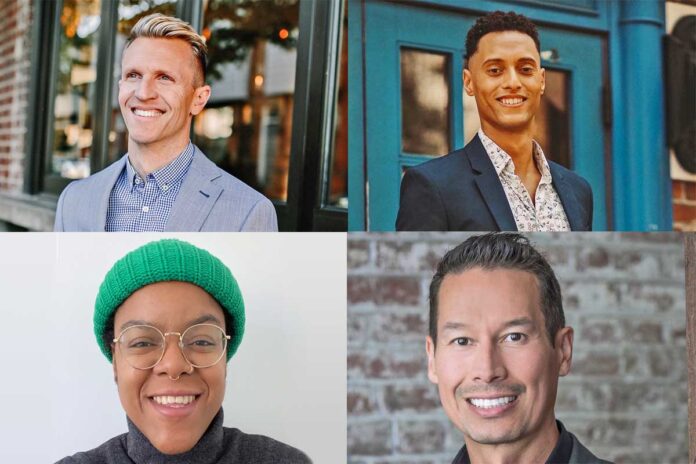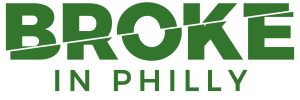
The real estate industry, like many other professions, has not been as diverse in the past as it is today, and it still has plenty of room for improvement. But despite elitism, nepotism, and other potential barriers like high costs of classes and the need to hustle and build connections, the real estate field has seen an increase in LGBTQ realtors over the years.
“There’s a strong push for diversity right now across industries,” said Julian Domanico, who is licensed with Berkshire Hathaway HomeServices Fox & Roach at The Harper: Rittenhouse, and also practices real estate as an independent contractor. “There’s a lot of opportunities for real estate agents to make mistakes when it comes to the [Equal Employment Opportunity Commission], where the language we use is important. It can make people feel like they belong, like they’re comfortable, and it can also make people feel like they’re ostracized and uncomfortable. They put a lot of emphasis in real estate school for new agents to treat people exactly the same, not steward them in one direction or neighborhood or make assumptions about their life or their price points.”
Similar to having a queer therapist or doctor who’s familiar with their patients’ life experiences, LGBTQ realtors are often a culturally competent fit for LGBTQ home buyers and sellers. Queer realtors may be more attuned to using gender-neutral language, or avoiding terms that may lead to assumptions about a client or colleague’s sexual orientation or gender identity.
“We are therapists to a large degree, we help guide our clients, educate them and really be a trusted resource for them,” said Brad Button, who runs the Button Team at Compass Real Estate. “It’s a very personal journey, purchasing or selling real estate. So much comes up in terms of life situation, personal goals, where you want to be, whether you’re making some kind of life transition. Having someone that really understands what you may be going through really helps.”
“I think [LGBTQ realtors] are really important to help understand the dynamics of an LGBTQ person,” said Tom Englett, sales manager at the same brokerage as Domanico. “I think as a gay person you’re more open minded, you kind of have a better understanding of lifestyle.”
Omosi Anabui is a licensed real estate agent with Keller Williams Realty. Like Domanico, she’s at the start of her career, working to build her network and forge connections with people in the community. For her, LGBTQ realtors are important because it speaks to the fact that the people in her life fostered opportunities that opened doors for an LGBTQ person of color like herself, she said.
“I think my getting into the industry will hopefully open up a vehicle for more folks like me to have that access,” she said. “Especially somebody who also identifies as Black, African American, you see the disparities in even something as simple as being approved for a mortgage loan, [to have to] figure out ways to still make this attainable and accessible. Being able to have that inside information to create a vehicle for my people.”
All four realtors agreed that buying a home may be difficult right now because it is a seller’s market, and houses sometimes sell for substantially higher than the asking price.
“Home prices have gone up, and when there’s competition, people with deeper pockets are digging deep to pay more money for the home that might not be worth what they’re paying at this point,” Englett said. “If someone sells their home, they’re selling at a much higher price but they’re also having to pay a much higher price to get back into the market. Because of that, people have decided that maybe it’s not a good time to sell.”
As such, it may be doubly important for a buyer or seller who’s part of a minority community to navigate the housing market with a realtor of a similar background.
Anabui said one challenge for LGBTQ and QTBIPOC buyers and sellers is “being able to work with someone who understands your lived experiences when it comes to something as simple as having to work twice as hard to get you approved for a mortgage. Or maybe you don’t have the finances compared to somebody else, so we want to make your office more appealing but we don’t have the option to be able to drop $30,000 in the event that there’s something weird with the numbers on closing day. How do we still make your offer wanting to be accepted, especially in this market where it’s crazy out there.”
Domanico observed that an influx of developers in Philadelphia are attracting people from all over the country, specifically from Boston, New York and Washington D.C., who consider Philly relatively affordable.
“That is a huge issue for long term Philadelphians and LGBTQ Philadelphians who oftentimes don’t live in the more expensive places in Philly,” he said. “Those people are being priced out as well just like Philadelphians have been priced out for decades at this point.”
Anabui, Button, Domanico and Englett all said that they think there is a paucity of LGBTQ of color realtors in the industry, at least in the Philadelphia area.
“I work for a brokerage that has a pretty diverse group of people you see on the main lines who are hitting those hard sells,” Anabui said. “But I’m not seeing a lot of diversity on the ground, I’m not seeing a lot of folks doing the work, even the folks buying and selling. I one hundred percent see a huge disparity in folks who are queer people of color doing the work.”
Button and Domanico communicated that from their experiences, even though Philadelphia is home to a fair few LGBTQ realtors, little LGBTQ diversity exists in the local real estate industry.
“There seem to be a lot of white gay male cisgender realtors in the industry, but definitely a lack of LGBTQ female, transgender, and LGBTQ realtors of color,” Button said. “I’m not sure why that is, but it brings up a very important issue that needs to be addressed, and I’d love to see progress in that regard.”
Domanico framed the shortage of Black and Brown queer realtors as an issue of accessibility related to having resources. He said that paying for real estate classes, credentials, licensure, insurance and brokerage fees can get very expensive. “It’s just a tough process for an LGBTQ realtor of color who most likely is coming from a marginalized background or limited resources,” he said.
Even though Domanico doesn’t see many queer people of color working high level real estate jobs, he does not plan to sacrifice his authenticity to find success.
“I show up to places with a huge afro, with my hair in dreadlocks, in braids, in topknots,” he said. “I’m doing all types of natural hair styles every week almost because I’m trying to maintain a certain authenticity of who I am, and I’m not willing to worry over what business I might lose. Instead I want to attract people who see me as a full person. I’m really leaning into my Blackness, my queerness and not shying away from it.”

